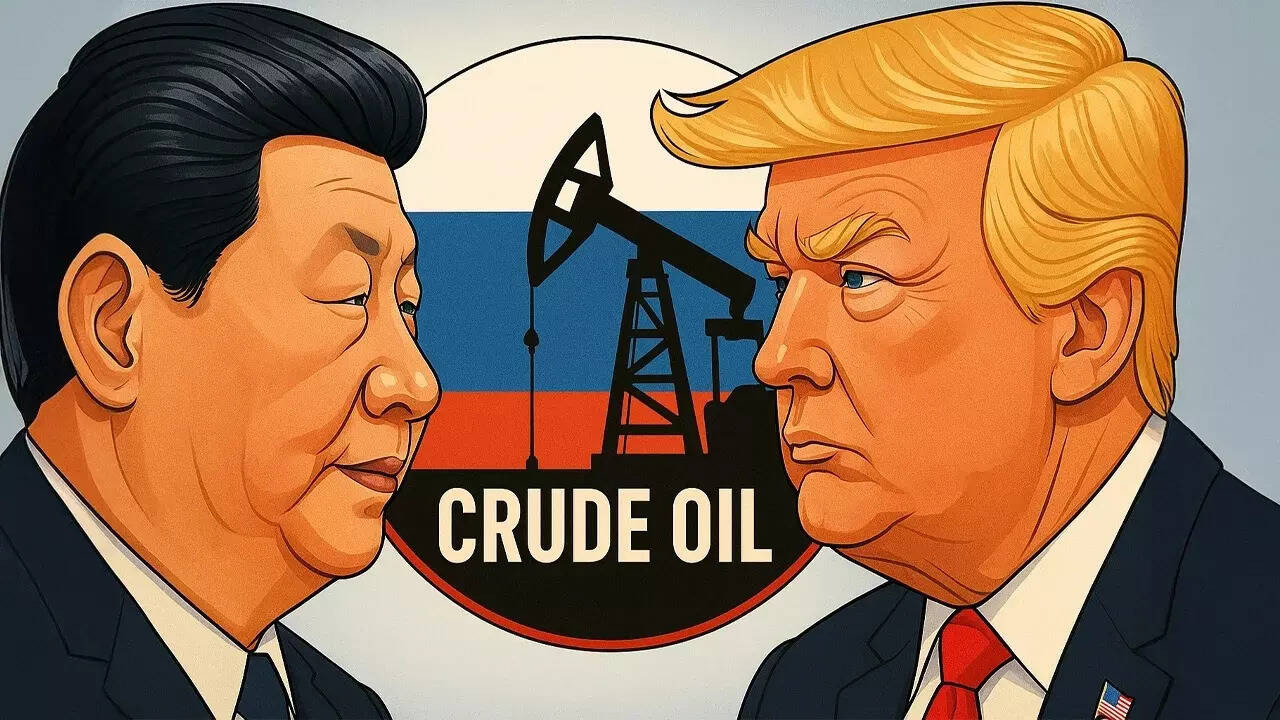China has strongly condemned the US proposal for G7 and NATO nations to impose tariffs on Chinese imports of Russian oil, labeling it as “unilateral bullying” and “economic coercion.” Beijing warned of retaliatory measures if countries comply with Washington’s request.
Navigating the Choppy Waters of Global Trade: China Responds to Potential New Tariffs
The global economic landscape just got a little more…prickly. Recent rumblings from across the Pacific suggest a potential trade storm brewing, one centered around Russia’s energy exports and the ripple effects felt across the international community. The core issue? Calls for tariffs on countries continuing to import Russian oil, a move that has drawn a sharp rebuke from China.
Imagine a chess board where every move carries significant weight. That’s the current state of global economics, and the threat of these new tariffs is a significant pawn being pushed forward. But what’s really going on here?
The crux of the matter revolves around the delicate dance nations are performing in the wake of sanctions and restrictions placed on Russia following the conflict in Ukraine. While many Western countries have drastically reduced or eliminated their reliance on Russian oil and gas, others, including China and India, continue to import it, often at discounted prices. This has led to frustration in some quarters, with the argument being that these purchases are indirectly funding the conflict.
The proposed tariffs, then, are designed to further squeeze Russia’s revenue streams and encourage wider participation in the sanctions regime. A laudable goal, perhaps, but one fraught with potential complications.
China’s response has been anything but muted. Official statements have condemned the proposed tariffs as “unilateral bullying” – strong words that highlight the growing tension surrounding international trade and geopolitical power plays. The Chinese government argues that its trade relations are conducted on a mutually beneficial basis and that external pressure, especially through punitive tariffs, is unacceptable interference.

But the real question isn’t just about principles. It’s about practical consequences. China has warned of potential countermeasures should these tariffs be imposed. This is not an empty threat. China wields considerable economic power, and any retaliatory action could have significant ramifications for global trade flows, potentially disrupting supply chains and impacting businesses worldwide.
Think of it like this: a domino effect. Tariffs on countries importing Russian oil could trigger a chain reaction of retaliatory measures, leading to a full-blown trade war. Nobody wants that.
How Would New Tariffs on Russian Oil Affect Consumers?
The impact of such a trade war would likely be felt by consumers in the form of higher prices for goods and services. Increased tariffs translate to higher costs for businesses, which are often passed on to consumers. Moreover, the disruption of supply chains could lead to shortages and further price increases.
It’s not just about the price at the pump, either. The cascading effects could touch everything from electronics to clothing, impacting household budgets across the globe. The complexities of international trade mean seemingly isolated actions can have far-reaching and unintended consequences.
The Search for a Balanced Solution
So, what’s the alternative? The challenge lies in finding a balanced approach that addresses the concerns about funding the conflict in Ukraine without resorting to measures that could destabilize the global economy. Diplomacy, dialogue, and a willingness to compromise are essential. Exploring alternative energy sources and promoting energy independence are also crucial long-term strategies.
Ultimately, navigating these choppy waters requires careful consideration, a commitment to multilateralism, and a recognition that cooperation, not confrontation, is the best path forward. The future of global trade may hinge on it.







